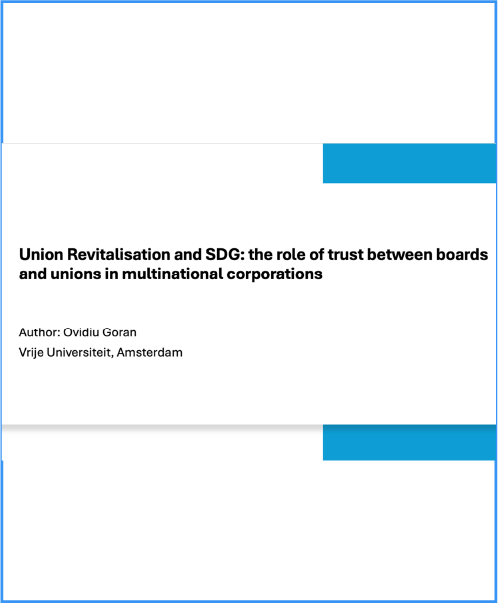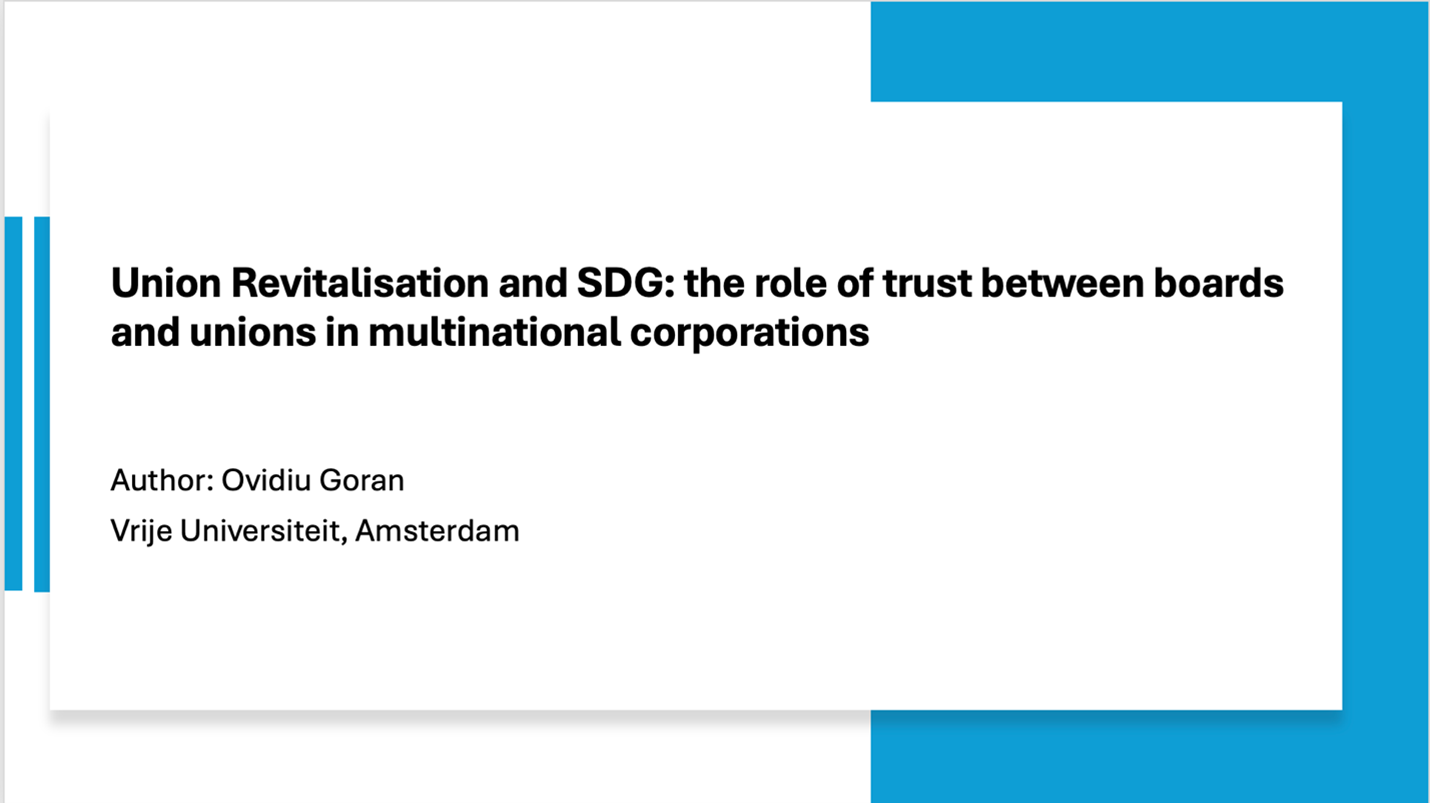
Union Revitalisation and SDG’s: the role of trust between unions and boards of multinational corporations
Author: Ovidiu Goran
Vrije University, Amsterdam School of Business and Economics
Business Research Institute (ABRI)
Amsterdam, 1081
ABSTRACT
Over the past century, multinational corporations (MNCs) have shaped the world. The current corporate paradigm prioritises profit over worker well-being, social equity, and environmental sustainability. While scholars have started exploring trade unions’ role in climate change, there is limited research on whether innovative forms of social dialogue within MNCs could contribute to sustainability transitions. This paper examines the potential contribution of multi-stakeholder partnerships between boards of directors and trade unions in MNCs to meet the green transition and sustainability targets. Boards serve as intermediaries between shareholders and management, balancing control and mediation roles. By moving beyond the paradox of control, the boards and trade unions could create innovative corporate structures that challenge the status quo and support a just green transition. Positioned as a manifesto for responsible capitalism and stakeholder democracy, this paper argues that trade unions’ strategies need to extend beyond worker rights to represent and protect humanity.
This paper empirically investigate under which conditions boards and trade unions could cooperate to integrate green and sustainability objectives in the case of a manufacturing MNC with subsidiaries across three countries with different labour institutions (e.g. Germany, Italy and Romania). Based on qualitative data from key stakeholders, it will seek to investigate (i) the potential and current role of trade unions in addressing specific green and sustainable goals by collaborating with the board and (ii) the effects of the level of trust between trade unions and the board on union revitalisation.
